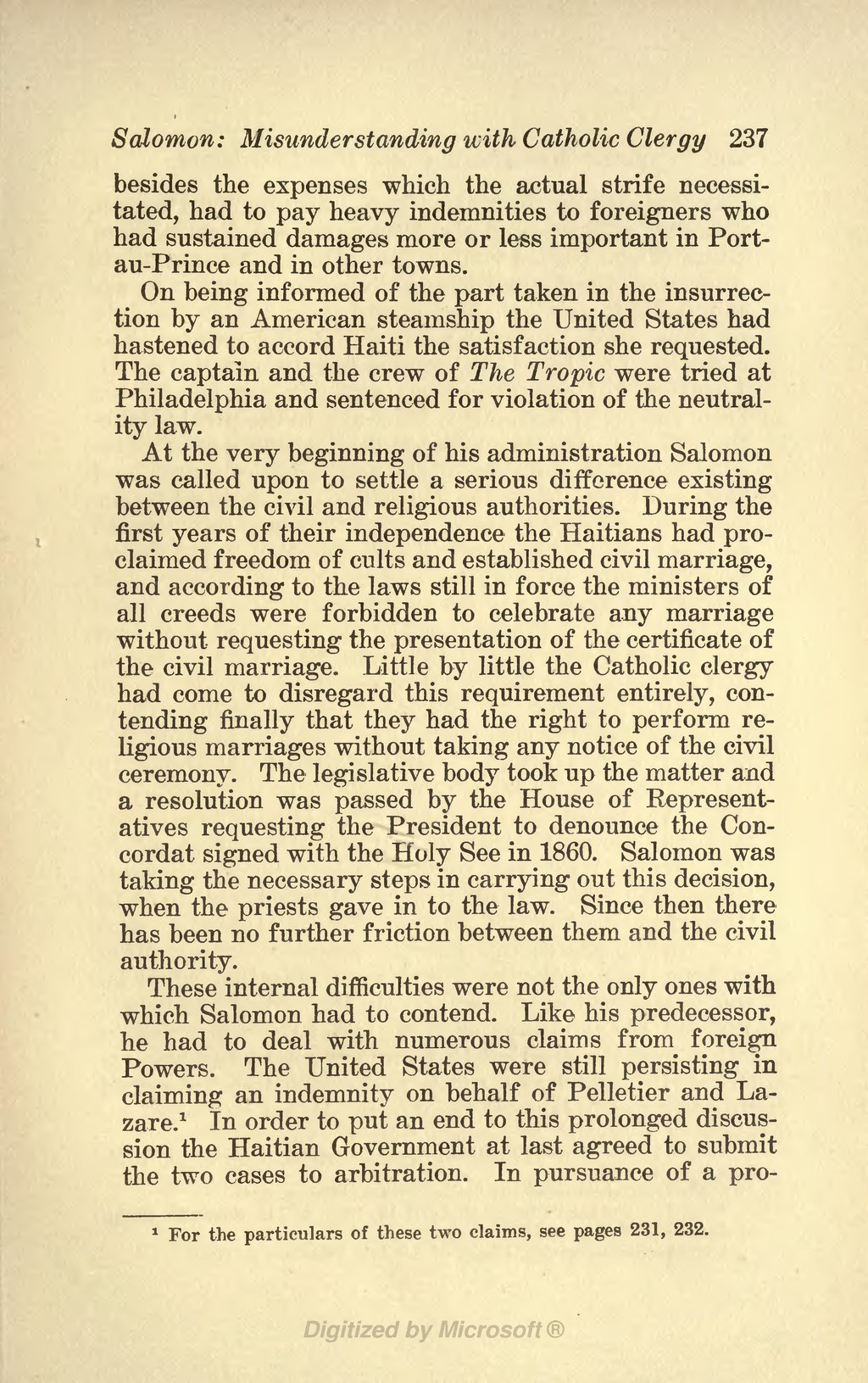besides the expenses which the actual strife necessitated, had to pay heavy indemnities to foreigners who had sustained damages more or less important in Port-au-Prince and in other towns.
On being informed of the part taken in the insurrection by an American steamship the United States had hastened to accord Haiti the satisfaction she requested. The captain and the crew of The Tropic were tried at Philadelphia and sentenced for violation of the neutrality law.
At the very beginning of his administration Salomon was called upon to settle a serious difference existing between the civil and religious authorities. During the first years of their independence the Haitians had proclaimed freedom of cults and established civil marriage, and according to the laws still in force the ministers of all creeds were forbidden to celebrate any marriage without requesting the presentation of the certificate of the civil marriage. Little by little the Catholic clergy had come to disregard this requirement entirely, contending finally that they had the right to perform religious marriages without taking any notice of the civil ceremony. The legislative body took up the matter and a resolution was passed by the House of Representatives requesting the President to denounce the Concordat signed with the Holy See in 1860. Salomon was taking the necessary steps in carrying out this decision, when the priests gave in to the law. Since then there has been no further friction between them and the civil authority.
These internal difficulties were not the only ones with which Salomon had to contend. Like his predecessor, he had to deal with numerous claims from foreign Powers. The United States were still persisting in claiming an indemnity on behalf of Pelletier and Lazare.[1] In order to put an end to this prolonged discussion the Haitian Government at last agreed to submit the two cases to arbitration. In pursuance of a pro-
- ↑ For the particulars of these two claims, see pages 231, 232.
